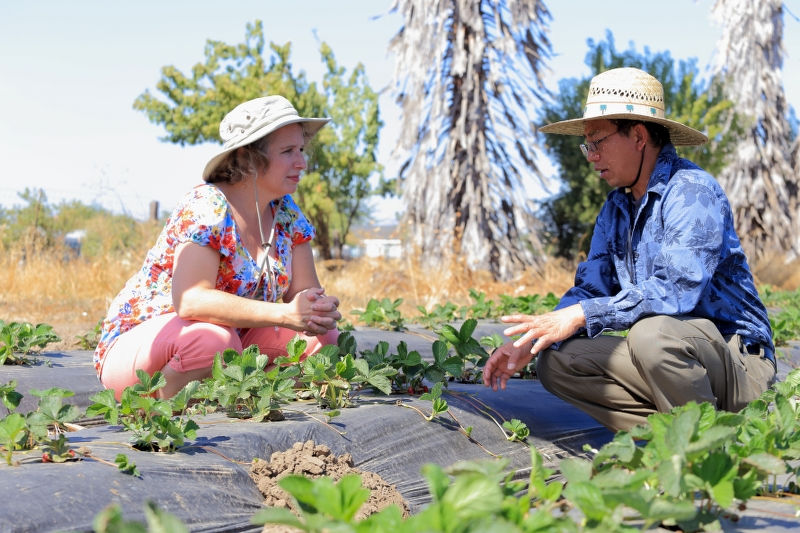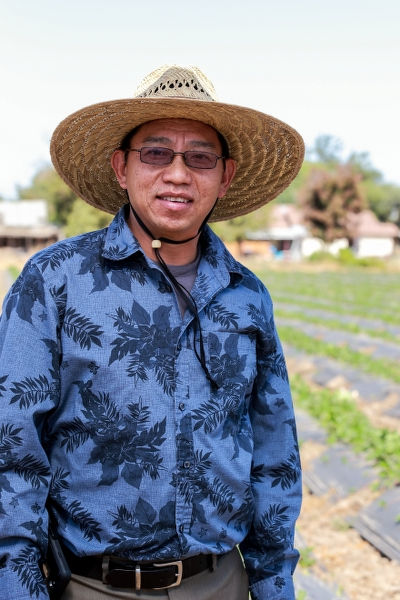Valley Roots - FREE play about Hmong family Farmers set to hit the Stage Dec. 1 & 2
- Admin
- Oct 14, 2017
- 4 min read

For over two decades Dawn Trook has been working in communities across California to bring impacting theatre productions to fruition. Since 1994, she has worked as everything from an actor and writer to a producer and University of California system lecturer, striving to bring new theatre works to the masses. And with the harvest moon passing as I write this article, Trook is back at it working in conjunction with the UC Merced Center for the Humanities to produce Valley Roots, a community-engaged theater project that will highlight Merced County’s agricultural community.
"Farming is something you,
and everyone else, should know how to do"
Through the Valley Roots theater project, Trook will be making use of the special skill set among local actors, directors, and writers to tell the stories of people working in farming and food production in Merced County. By giving a voice to a segment of our local community that are often marginalized, Trook and her team for the Valley Roots Project hope to not only give local farmers an opportunity to have their voices heard, but give individuals and communities who may not otherwise cross paths an opportunity to create understanding and jumpstart conversations. In particular, the project aims to “show the differences in our experiences, but more importantly, highlight the commonalities that will inspire us to see each other with more compassion and more understanding,” Trook explained.

One of the many farmers that Valley Roots worked with was Paul Thao of Merced. Thao continued his agricultural work after coming to the United States from Laos, eventually opening up his own operation on Highway 59 in 2009. After working with his wife, Lai Saethao, and the many landowners she worked with, the two would take the plunge and open up their own four acre farm on the outskirts of the City of Merced next to the McSwain Lateral. While the Thao had previously practiced sustenance farming, he soon found that farming in the United States was a whole new experience. “I didn’t know how to farm here in this country,” he recalled. “Back in Laos, everyone’s job is to farm to get food onto their own table. Here though, farming is much harder.” As a particularly striking example, Thao noted the common practices of larger corporations using the leverage that comes with their size to drive the prices of his strawberries, blackberries, boysenberries, and other fruits and vegetables down. Unable to forego the sale, and with the produce deteriorating as negotiations go on, this can put many farmers in a corner so to speak. Add that to the practice of seed wholesalers creating hybrid seeds that only produce fruits and vegetables for a single season, and often times this can further complicate small farmer’s situations, who might otherwise harvest seeds from their current year’s produce to plant and begin the next planting season to create more natural heirloom products unique to their farm. He went on to explain that the common place use of specialized machinery, fertilizers, and pesticides, as well as the litany of laws, regulations, and general safety issues of all these items when brought onto acreage, was something that was difficult to understand. “In Laos, you just plant, wait for the rain, and it will grow,” Thao said. In that vein, Thao’s farm keeps to use of chemical agents to a near-non-existent amount, preferring to instead simply return to the type of farming he is accustomed to so far as the local regulations and accepted systems allow. “I’d rather keep the work with the strawberries done with my own two hands,” Thao stated. “It’s physical work, but it makes you stay in shape, and it’s why we don’t have problems with headaches and backaches.”Despite that physicality of the work, Thao knows he wouldn’t want it any other way. “Farming is something you, and everyone else, should know how to do,” he said. “It is something you need to know how to do to know what you’re eating.” For those interested in hearing more of Thao’s story, Valley Roots plays will be coming to the public in the first week of December. Audience members and participants will complete surveys to assess the community impact of the plays as a whole. For those who wish to portray the stories of local farmers like Paul Thao, auditions for the plays are currently getting underway. No experience is necessary, and those who are interested do not need to prepare anything specific for the audition. Actors who are cast in the play will be mentored and coached by the directors and experienced actors. For more information regarding the auditions, Dawn Trook can be reached by email at ValleyRootsMerced@gmail.com or by phone at 415-728-2488.
Opening night reception Celebrating two new plays about the Merced agricultural community "Ours to Lose," a play about Hmong family farmers by Yia Lee "Straws," a play about women in agriculture by Hannah Maulden December 1st 6 PM reception 7 PM program & performances. Merced Multicultural Arts Center, 645 W Main St., Merced
Valley Roots will also be performed: December 2nd 7 PM (with a panel on inter-generational issues by the UC Merced Hmong Student Association), UC Merced, Lakireddy Auditorium, 5200 North Lake Road December 3rd, 2 PM & 7 PM (with a Q&A with the cast, writers, and directors after the 2 PM performance),
ALL PERFORMANCES ARE FREE






Comments